Forklift Licence & Forklift Training in Sydney
Blacktown & Moorebank Courses
- Start work in just 2 days with a forklift licence
- 4.9 star Google Reviews
- Afterpay available
Call: 02 8814 8640
Get your forklift licence fast with Australian Forklift Training (RTO ID: 91037). Since 2001, we’ve trained over 20,000 students across Sydney. Whether you need an Express, Standard, or Premium course, we’ll help you become job-ready in days.
Compare Our Forklift Training Packages
Training held at AFT Centre only. Onsite training POA.
TLILIC0003 Licence to operate a forklift truck
Express Course
Must have min 3 months experience-
1 day
-
18 years + only
-
Average English reading, writing & numeracy skills
-
Bite sized pre-course theory
-
Free re-assessment if not competent*
-
Experienced Operators only
-
Group Training
-
No Verbal Assessment
-
No one-on-one training
-
Additional training days included
Standard Course
Perfect for beginners-
1.5 days
-
18 years + only
-
Average English reading, writing & numeracy skills
-
Bite sized pre-course theory
-
Free re-assessment if not competent*
-
Beginner friendly
-
Group Training
-
Verbal Assessment available
-
No one-on-one training
-
Additional training days included
Standard Max
Beginners wanting 1-on-1 attention-
1.5 days + 1 hour 1-on-1
-
18 years + only
-
Average English reading, writing & numeracy skills
-
Bite sized pre-course theory
-
Free re-assessment if not competent*
-
Beginner friendly
-
Group Training
-
Verbal Assessment available
-
1 hour one-on-one training
-
Additional training days included
Premium Course
Additional Support required**-
3.5 days
-
18 years + only
-
Below average English reading, writing & numeracy skills
-
Bite sized pre-course theory
-
Free re-assessment if not competent*
-
Beginner friendly
-
Group Training
-
Verbal Assessment available
-
Additional training days included
-
No one-on-one training
*1 (one) free re-assessment to each individual only. Fees apply for additional training days, unless stated as included above.
** Our Online Pre-course learning has an in built accessibility widget for your individual needs. SafeWork NSW will allow our trainer/assessors to conduct all theory assessments as a Verbal Assessment.
Get Licensed Fast – From $295, Job-Ready in Days
Our forklift licence courses are designed for every learner: quick, affordable, and nationally recognised.
Why choose Australian Forklift Training?
- SafeWork NSW Approved (#799997)
- Over 20,000 licences issued since 2001
- 4.9 ★ rating from 1200+ students
- Trainers with 15+ years' experience
- Blacktown & Moorebank Locations
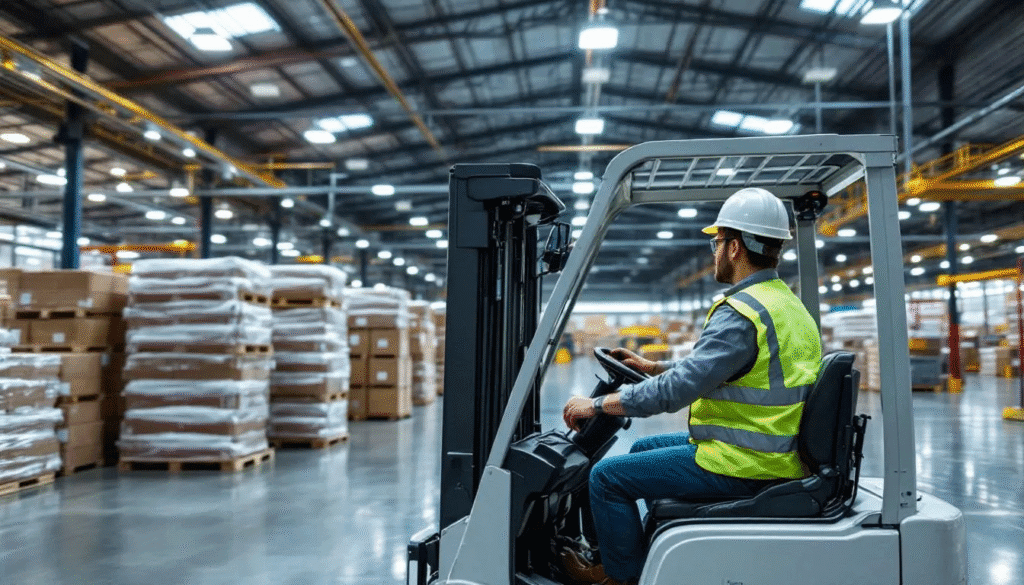

Forklift Training Locations – Sydney, Blacktown & Moorebank
- Easy access from major roads and public transport
- Modern training facilities with real-world forklift operation areas
- Small class sizes for personal attention
- Flexible schedules including weekends and weeknights
- Industry connections for employment pathways
- Female & Male Trainers
AFT Blacktown: 1/3-5 Tattersall Rd Blacktown NSW 2148
AFT Moorebank: 7/30 Heathcote Rd Moorebank NSW 2148
Secure Your Forklift License in Just Three Simple Steps
Online Theoretical Learning
With our online learning platform, you have the flexibility to study at your own convenience and pace. It's a swift and enjoyable alternative to plodding through a dull textbook. In fact, thanks to our online theory approach, our courses are now half as time-consuming as those of our nearest competitors.
Hands-on Practical Training
Our online learning system empowers you to make the most of your time away from work by dedicating more hours to hands-on forklift training under the guidance of our expert instructors.
Job-Ready Certification
Whether you're a seasoned forklift operator seeking an express course, a complete novice, or somewhere in between, we offer the perfect program to prepare you for employment swiftly.
Quick links to resources:
- Read our complete guide to forklift licences in Sydney to prepare for your training.
- Understand the full forklift licence requirements in NSW explained
- Read our breakdown of the difference between a forklift licence and LO order picker licence
Frequently Asked Questions
Getting a forklift license in NSW typically costs between $300-$750.
SafeWork NSW additionally charges a licence fee payable at the post office upon completion.
Getting a forklift licence in Australia typically costs between $85 – $100, depending on the state workplace safety authority.
You need to obtain a High Risk Work (HRW) licence for which fees are listed online.
To obtain a forklift license in NSW, you must first undertake training and assessment with an approved Registered Training Organisation (RTO).
You will then need to pass the written theory exam and practical test, assessed by a certified SafeWork NSW assessor.
Upon successful completion, you will be granted a Licence to Perform High Risk Work.
AFT has two training centre locations near you, Blacktown & Moorebank.
AFT has two huge locations.
Online forklift theory training allows you to learn in your own time, while in-person training offers direct feedback from an instructor and practical skills development.
Areas our Blacktown Training centre services:
Areas our Moorebank Training centre services:
Forklift Licence: Complete Guide to Getting Certified in Australia
Operating a forklift truck without proper certification isn’t just dangerous—it’s illegal and can result in fines up to $20,000. In Australia, anyone who wants to operate a forklift must obtain a high risk work licence through a registered training organisation and demonstrate their competency through rigorous assessment.
Book your forklift training at our Blacktown or Moorebank centre
Whether you’re looking to enhance your career prospects in warehousing, manufacturing, or logistics, or your employer requires you to get certified, this comprehensive guide covers everything you need to know about obtaining your forklift licence in Australia. From understanding the different types of licences available to choosing the right training course, we’ll walk you through the complete process step by step.
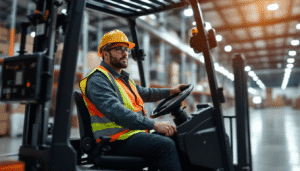
What is a Forklift Licence and Why Do You Need One?
A forklift licence in Australia is officially classified as a high risk work licence (HRWL) issued by SafeWork authorities in each Australian state. This certification proves that you have the knowledge and skills to operate safely in workplace environments where forklifts are used. The primary certification option for operating a forklift in Australia is the TLILIC0003 Licence to operate a forklift truck.
We deliver training for the nationally recognised units:
TLILIC0003– Licence to operate a forklift truck
TLILIC0004– Licence to operate an order picking forklift truck
The licence covers various types of equipment including counterbalance forklifts, reach trucks, and order picking forklift trucks. Unlike some other machinery certifications, a forklift license is a legal requirement—not just a workplace preference. This means every person who wants to operate a forklift truck must complete nationally recognised training and pass both theoretical and practical assessments.
Legal Requirements and Penalties
SafeWork regulations across Australia are strict when it comes to forklift operations. Businesses that allow unlicensed personnel to operate forklifts face significant penalties, while individuals caught operating without proper certification can be fined up to $20,000. These penalties exist because forklift accidents cause mutliple fatalities and 34,900 serious injuries annually in workplaces.
The high risk work licence system ensures that only trained and competent operators have a licence to operate this heavy equipment. Employers are also legally required to verify that their personnel hold current, valid licences before allowing them to work with forklifts or related earthmoving equipment.
How to Get Your Forklift Licence
Getting your forklift licence involves a structured process that combines theoretical learning with hands-on practical assessment. Here’s the step-by-step process to achieve certification:
Step 1: Choose a Registered Training Organisation
Select a registered training organisation (RTO) that offers forklift training courses. Ensure they’re properly accredited by ASQA (Australian Skills Quality Authority) and authorised to conduct high risk work assessments. A quality RTO will have experienced instructors, be fully equipped with modern training equipment, and meet industry standards.
Enroll in a forklift licence course that covers essential safety knowledge, load capacity calculations, and workplace regulations. This theoretical component can often be completed online, allowing students to study at their own pace before attending practical sessions. Courses typically range in duration from one to three days, depending on the provider and course structure.
Enroll in a forklift licence course that covers essential safety knowledge, load capacity calculations, and workplace regulations. This theoretical component can often be completed online, allowing students to study at their own pace before attending practical sessions.
Step 3: Pass Practical Assessment
Demonstrate your ability to operate safely through hands-on assessment with qualified trainers. This practical assessment covers pre-operational checks, load handling techniques, and safe maneuvering in various workplace scenarios.
Step 4: Receive Certification Documents
Upon successful completion, you’ll receive a Statement of Attainment and WorkSafe Notice of Assessment. These required documents prove you’ve met the competency standards for forklift operation. You must submit your satisfactory assessment notice and required documents to your state’s SafeWork NSW authority to receive your official High-Risk Work (HRW) licence.
Step 5: Apply for Physical Licence Card
Submit your renewal application to the relevant SafeWork NSW authority along with photo id and the required fee (typically $80-$90). You can usually apply online through the Service NSW website for your Australian state.
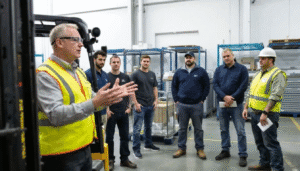
Types of Forklift Licences Available
Australia offers several categories of high risk work licences for different types of forklift equipment:
LF – Counterbalance Forklift Licence
This covers standard warehouse forklifts with counterweight systems. It’s the most common type of licence and allows you to operate traditional sit-down forklifts used in warehouses, manufacturing facilities, and retail environments.
LO – Order Picker Licence
Specifically for order picker equipment used in high-bay warehouses. An order picking forklift truck allows operators to travel up with the load to retrieve items from elevated storage locations. This licence covers equipment where the operator platform elevates with the forks.
Combined LF/LO Licence
Many training providers offer combined courses that cover both counterbalance and order picker operations. This gives you maximum flexibility and opens up more employment opportunities across different industries.
Additional Equipment Categories
Some training courses also cover related equipment like elevated work platforms, boom type elevating work platforms, and other specialised machinery. While not technically forklifts, these often fall under similar high risk work licensing requirements.
Certain specialised equipment like bridge and gantry cranes or telehandlers may require additional endorsements or separate licences depending on the specific equipment and workplace requirements.
Forklift Training Course Options
Training providers offer various course formats to accommodate different schedules and learning preferences:
Face-to-Face Training
Traditional classroom-based courses conducted at training centers with experienced instructors. These typically include both theory sessions and practical training on fully equipped sites with various forklift models.
Onsite Training
Many businesses prefer onsite training where instructors bring equipment to your workplace. This on site approach allows teams to train together and ensures the training addresses specific needs of your work environment. Minimum group sizes usually apply for cost-effective delivery.
Combining online theory with practical assessment offers flexibility for working professionals. Students complete theoretical components at their own pace, then attend practical sessions for hands-on assessment. The combination of online and practical training results in a more efficient learning process for students.
Combining online theory with practical assessment offers flexibility for working professionals. Students complete theoretical components at their own pace, then attend practical sessions for hands-on assessment.
Express Courses for Experienced Operators
Intensive programs designed for participants who have previous experience operating forklifts but need formal certification. These fast-track courses focus on assessment rather than basic skill development.
Course Duration and Scheduling
Standard Courses for Beginners
Comprehensive training programs typically run for 16-24 hours spread over 2 days. This allows sufficient time for students to develop confidence and master all required skills before assessment.
Express Courses for experienced operators
Experienced operators can often complete certification in 1 day through accelerated programs. These focus on verification of competency rather than basic skill development.
Most training providers offer weekday and weekend classes to accommodate shift workers and busy professionals. Some providers also offer part-time scheduling spread over several weeks. Students can earn their qualifications at their own pace through flexible training options.
Most training providers offer weekend and evening classes to accommodate shift workers and busy professionals. Some providers also offer part-time scheduling spread over several weeks.
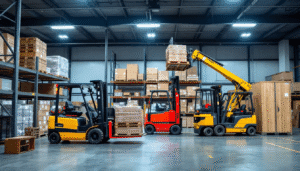
Forklift Licence Requirements and Eligibility
Before enrolling in a forklift licence course, ensure you meet the basic eligibility requirements:
Age Requirements
You must be at least 18 years old to apply for a forklift licence in Australia. This is a strict requirement across all states and territories.
English Language Proficiency
Adequate English language skills are essential for safety in the workplace. If English is your second language, you may need to demonstrate sufficient comprehension to understand safety instructions and complete written assessments. Some training providers offer additional support for participants who need extra assistance with numeracy requirements or language barriers.
Physical Fitness
While there are no specific medical requirements, you must be physically capable of safely operating heavy machinery. This includes adequate vision, hearing, and mobility to perform pre-operational checks and respond to workplace hazards.
Identification Requirements
You’ll need valid photo id for enrollment and licence application. Acceptable forms include driver’s licence, passport, or other government-issued identification. Some providers may also request additional documents like a medicare card for verification purposes.
No Prerequisites
Unlike some specialised equipment licences, forklift certification doesn’t require previous educational qualifications or specific work experience. However, any background with machinery or warehouse operations can be beneficial for learning.
Course Content and Assessment Process
Forklift training courses combine theoretical knowledge with practical skills development:
Theory Component
The theoretical portion covers SafeWork NSW regulations, safety standards, and operational principles. Key topics include:
Load capacity calculations and stability principles
Pre-operational inspection procedures
Workplace safety regulations and compliance requirements
Understanding load charts and weight distribution
Hazard identification and risk management
Practical Training
Hands-on training takes place in controlled environments using various forklift models. Students learn essential operating skills including:
Daily pre-operational checks and maintenance procedures
Safe loading, unloading, and material handling techniques
Maneuvering in confined spaces and around pedestrians
Proper parking, fueling, and battery charging procedures
Assessment Requirements
To pass the course and receive certification, students must:
Achieve minimum 91% on written assessments covering safety knowledge
Successfully demonstrate practical competency in all required skills
Complete comprehensive assessment covering both routine operations and emergency procedures
Experienced instructors conduct all assessments using industry-standard evaluation criteria. If a student doesn’t pass on their first attempt, most training providers offer additional support and retesting opportunities. Trainees who are deemed ‘Not Yet Competent’ have the option to sit for a re-assessment within 60 days from their first assessment.
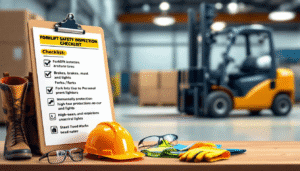
Forklift Licence Costs and Payment Options
Training costs vary depending on course type, location, and training provider:
Standard Course Pricing
Face-to-face training courses typically range from $295 to $595 across Australia. This variation depends on course duration, equipment provided, and regional differences in operating costs.
Premium Onsite Training
Onsite training generally costs $150-200 per person extra for groups of 5 or more participants. This option provides excellent value for businesses training multiple employees while eliminating travel time and costs.
Additional Fees
Budget for licence application fees of $80-90 payable to SafeWork authorities. Some training providers include this in their course price, while others charge it separately. Always check for hidden fees before enrolling.
Payment Options
Many training providers offer flexible payment solutions including:
Afterpay and Zip Pay for spreading costs over several installments
Group discounts for businesses training multiple personnel
Corporate accounts for regular training needs
Payment plans for individual students facing financial constraints
Verification of Competency Costs
VOC assessments for licence renewal typically cost $125+gst, significantly less than initial certification courses since they focus on assessment rather than comprehensive training.
Licence Renewal and Verification of Competency
Forklift licences remain valid for 5 years from the issue date, but maintaining workplace compliance requires ongoing attention:
Licence Renewal Process
Submit your renewal application to SafeWork NSW before your licence expires. Late renewals may require additional fees or even complete recertification depending on how long the licence has been expired.
While licences last 5 years, most workplaces require verification of competency (VOC) assessments every 3 years. This ensures operators maintain current knowledge and safe operating practices throughout their career. VOC assessments typically include both theoretical and practical evaluations to confirm an individual’s competency.
While licences last 5 years, most workplaces require verification of competency voc assessments every 2 years. This ensures operators maintain current knowledge and safe operating practices throughout their career.
Verification assessments focus on:
Current knowledge of safety regulations and workplace procedures
Demonstration of safe operating techniques
Understanding of any equipment changes or workplace modifications
Compliance with updated industry standards
Forklift operators must undergo a VOC to confirm they possess the necessary skills and knowledge from their initial training.
Verification assessments focus on:
Current knowledge of safety regulations and workplace procedures
Demonstration of safe operating techniques
Understanding of any equipment changes or workplace modifications
Compliance with updated industry standards
Continuing Professional Development
Many operators enhance their skills through additional training courses covering specialized equipment or advanced techniques. This ongoing professional development supports career advancement and workplace safety.
Penalties for Expired Licences
Operating with an expired licence carries the same penalties as operating without certification. Employers and operators both face potential fines and legal liability for compliance failures.
Benefits of Having a Forklift Licence
Obtaining forklift certification offers numerous personal and professional advantages:
Career Opportunities
A forklift licence opens doors to employment in diverse industries including:
Warehousing and distribution centers
Manufacturing and production facilities
Construction and building sites
Retail operations like australia post facilities
Port and logistics operations
Increased Earning Potential
Certified forklift operators typically earn higher wages than general laborers. The specialized skills and legal requirements create demand for qualified personnel across many industries.
Portable Qualification
Your licence is recognized across all Australian states and territories, making it easy to relocate or find work anywhere in the country. This mobility is particularly valuable in industries with fluctuating regional demand.
Foundation for Advanced Certifications
Forklift certification often serves as a stepping stone to other machinery licences including elevated work platforms, gantry cranes, or specialized construction equipment. Many operators build successful careers by expanding their qualifications over time.
Enhanced Safety Knowledge
Training develops valuable safety skills applicable beyond forklift operation. Understanding risk management, hazard identification, and safe work practices benefits any industrial career.
Professional Confidence
Proper certification gives operators confidence to work safely and efficiently. This competency translates into better job performance and reduced workplace stress.
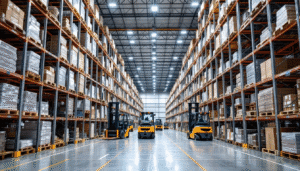
Choosing the Right Forklift Training Provider
Selecting the perfect program requires careful evaluation of several factors: Australian Forklift Training has been providing forklift, machinery, and safety training solutions for over 25 years in Sydney.
Accreditation and Compliance
Verify that your chosen provider is a registered training organisation with current ASQA registration. Check that they’re authorised to conduct high risk work assessments and issue valid certifications.
Trainer Qualifications
Look for providers with experienced instructors who have current industry expertise. Trainers should hold appropriate qualifications and maintain their own professional development.
Training Facilities and Equipment
Quality training centers are fully equipped with modern forklifts representing different types and models. Facilities should simulate real workplace conditions for effective skill development.
Course Flexibility
Consider providers offering flexible scheduling, multiple course formats, and additional services like verification of competency and refresher training. This ongoing relationship supports your long-term career development.
Student Support Services
Evaluate the level of support provided including retesting policies, additional tutoring for students who need extra help, and career guidance services.
Location and Accessibility
Choose convenient locations or providers offering onsite training if you’re organizing group courses. Consider travel costs and time when comparing options.
Questions to Ask Training Providers
Before enrolling, contact potential training providers to ask:
Equipment and Facilities
What forklift models and brands are used in practical training?
Are training facilities designed to simulate real workplace conditions?
How many students typically participate in each class?
Assessment and Support
What are the pass rates for first-time students?
What additional support is available for students who struggle with assessments?
What retesting policies apply if initial assessment is unsuccessful?
Services and Value
Do you offer onsite training and what are the minimum group sizes?
What additional services do you provide like VOC assessments?
Are there any hidden fees beyond the advertised course price?
Quality and Recognition
Can you provide references from recent students or corporate clients?
How long have you been providing forklift training?
What ongoing professional development do your trainers complete?
Getting clear answers to these questions helps ensure you choose a provider that offers comprehensive training, professional service, and good value for your investment.
Getting Started with Your Forklift Certification
Obtaining your forklift licence is a straightforward process that opens up numerous career opportunities while ensuring you can work safely and legally in Australian workplaces. The combination of theoretical knowledge and practical skills you’ll gain through proper certification creates a strong foundation for success in warehousing, manufacturing, logistics, and many other industries. Completion of forklift training provides participants with a nationally recognized Statement of Attainment under the Australian Qualifications Framework.
Remember that choosing the right training provider is crucial for receiving quality instruction and ongoing support throughout your career. Take time to research your options, compare course offerings, and select a registered training organisation that meets your specific needs and schedule requirements. Australian Forklift Training is a premier provider of forklift education and certification in Australia.
Whether you’re just starting your career or looking to enhance your existing skills, forklift certification represents a valuable investment in your professional future. The portable qualification, increased earning potential, and job security that comes with proper certification make it one of the most practical vocational qualifications you can obtain. Training for forklifts is available across multiple locations in Australia, providing flexibility for students.
Start by contacting Australian Forklift Training to discuss your options and get touch today to begin your journey toward forklift certification. With the right training and commitment to safety, you’ll soon have the skills and credentials needed to succeed in this essential industrial role.
